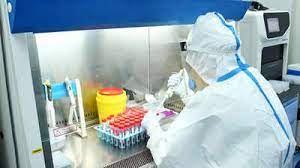WASHINGTON, Sept 19: Scientists in the US have developed a new genomic test that can predict a patient’s risk of developing severe COVID-19, an advance that could help doctors quickly begin tailored treatment.
The test proved over 90 per cent accurate at predicting patient outcomes for COVID-19 among over two dozen patients in intensive care and 100 patients from publicly available data, the researchers said.
The test, called CovGENE, analyses genes expressed in a person’s blood to determine whether they may experience a severe disease course with increased risk of death, they said.
“We have come far in the prevention and treatment of COVID-19 in the past two years. Regardless, we still struggle to identify patients at highest risk for severe disease,” said Alexandra Kadl, from the University of Virginia, US.
“Our study uses a gene-analysis approach to identify an immune cell signature, distinct from other respiratory illnesses, that correlates with worse outcomes,” Kadl said in a statement.
The approach, described recently in the journal Frontiers in Immunology, has the potential to help evaluate patients’ immune profile with commonly, readily available tests to identify patients at risk for bad outcomes.
Such patients would benefit from closer monitoring and advanced therapies to aid their recovery, the researchers said.
Immune profiling helps to understand why one person may differ from another in their immune response to a virus, looking specifically at the immune markers (proteins) and cells present over time.
This analysis can help determine the likelihood of disease, individual response to a virus and the impact of vaccinations.
CovGENE’s developer, AMPEL Biosolutions, is seeking to partner with a diagnostic testing company or pharmaceutical company to bring the approach to market as a simple PCR-based blood test.
“This unique collaboration with our colleagues from the University of Virginia has provided an easy and novel means to assess an individual patient’s response to the SARS-CoV-2 virus and predict the clinical outcome,” said Peter Lipsky, AMPEL’s CEO, chief medical officer and co-founder.
“Now that this unique approach has been validated, we look forward to its rapid development as a precision-medicine tool that can improve the outcome of patients with COVID-19 and reduce the number of hospitalisations, especially the most vulnerable,” Lipsky added. (PTI)
Trending Now
E-Paper


